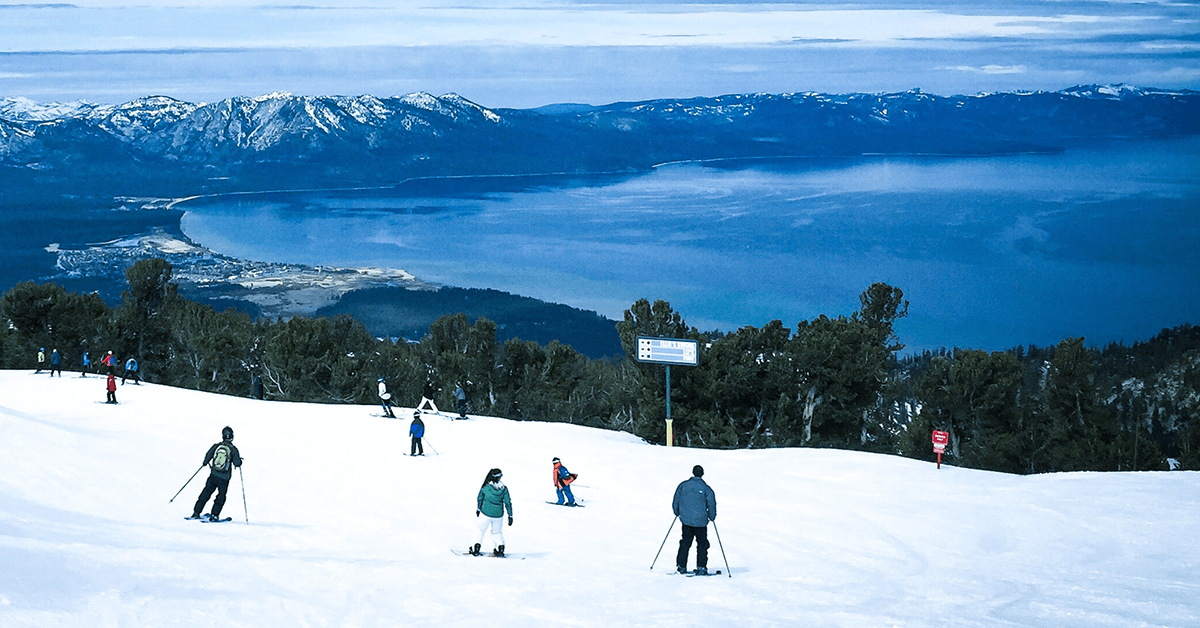 Lake Tahoe is a popular vacation destination.
Lake Tahoe is a popular vacation destination.South Lake Tahoe Tackles Short-Term Rentals
UPDATE: This election remains too close to call. At last count there was a razor-thin margin of only 25 votes. Stay tuned for a final, official tally and how that result will impact South Lake Tahoe.
Lake Tahoe is one of the premier tourist destinations in California, with thousands of visitors each year coming from around the world.
Cabins in the city of South Lake Tahoe have been rented for generations.
But custom and tradition can soon be gone in this California community if voters approve Measure T on Election Day in November.
About Measure T
Measure T is an initiative to curb short-term rentals in South Lake Tahoe by revoking the permits of 1,400 vacation rental homes located outside the city’s “tourism core” by 2021.
In 2017, City Council designated a small strip of land along Lake Tahoe Blvd. as its’ “tourism core.” There are approximately 450 vacation rental homes in this area. The others are in more residential sections of South Lake Tahoe and have engendered complaints from full-time residents due to the actions of some of the renters.
The city has attempted to address resident complaints pertaining to short term rentals since 2003 when it first adopted an ordinance. City Council has frequently, in the past 15 years, reviewed their ordinance and amended it to address issues that arise.
Last December, the city amended the ordinance once again by imposing stricter fines for parking and noise disturbances and capping the number of permitted properties outside of the core at 1,400.
Mayor Wendy David told the Sacramento Bee that these changes have already resulted in a reduction of the number of violations and complaints from previous years and that fewer citations have been written.
She added that more time is needed for members of the community to recognize these positive trends.
Tourism and the Economy
South Lake Tahoe is a community that relies heavily on tourism to make up its’ tax base as well as a primary revenue resource for city services and maintaining quality of life for residents. A whopping 78% of all homes in South Lake Tahoe are either second homes or vacation rental properties.
Vacation home renters infuse more than $100 million annually into the local economy. If Measure T passes, approximately 75% of that revenue would go away by 2021, when the permits on the homes outside of the tourism core would expire and not renew.
With that revenue loss, more than $3 million would have to be cut out of the city’s annual operating budget, which could lead to cuts in the police, fire and parks and recreation departments. Jobs in both the public and private sectors would be lost. Smaller businesses would suddenly be at risk. Infrastructure needs like road repair would slow to a crawl or be neglected entirely.
The city collects $1.49 million annually in tax revenue from the rental of the vacation homes alone, let alone money spent by renters on commerce in the vacation community. That too would shrivel to a much smaller number.
Another potential issue is that owners of current vacation home rental properties have grown accustomed to the financial benefit that their private property has provided and may choose to “go underground.” They may still rent it out on various online platforms, leading to more difficult enforcement by the city to stop illegal rentals, as well as dealing with any parking or noise ordinances that could crop up.
Additionally, a voter-approved new Recreation Center to replace the current dilapidated building and pool very likely would not have the funding necessary to be completed without the revenue generated from the existing vacation home rentals in the city.
Property Rights Concerns
Property owners have rights to use their home as they see fit as long as it doesn’t negatively impact the neighborhood or community. The passage of Measure T in November would infringe on those private property rights and negatively impact the vast majority of property owners who own vacation home rentals that operate in full compliance with the city and whose renters do not disturb or disrupt the community.
For the small number that do, strict ordinances and decreasing law enforcement response times are leading to quieter neighborhoods.
South Lake Tahoe has been a destination location for renters since before the city was incorporated. That incorporation, in 1965, was the result of the revenue generated by those renters and it’s been growing year-over-year ever since. Suddenly changing that would make for a very different community.
Time to Focus on Affordable Housing
Taxes on real estate are not the answer. Sign the petition calling on Congress to address our country’s housing shortage.





